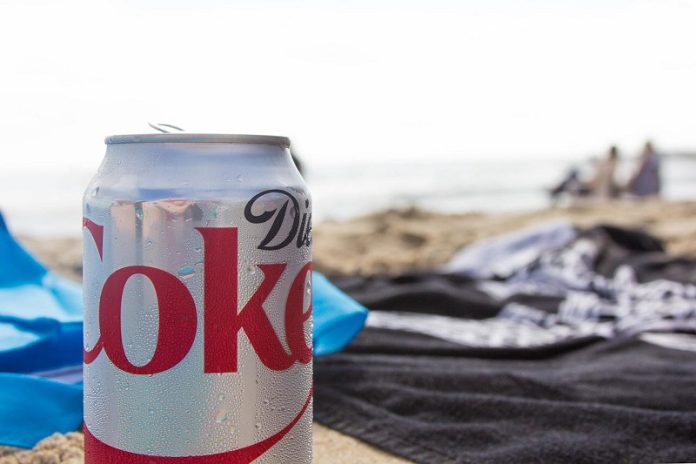
Scientists from Brigham and Women’s Hospital found that drinking diet soda is linked to lower colon cancer recurrence and death risk.
Colorectal cancer often begins as a growth called a polyp inside the colon or rectum. It is the third leading cause of death from cancer in the United States.
Early cases can begin as non-cancerous polyps. These often have no symptoms but can be detected by screening. For this reason, doctors recommend screenings for those at high risk or over the age of 50.
Previous studies have found some health conditions are linked to increased colon cancer recurrence and death, including sedentary lifestyle, diabetes, increased dietary glycemic load, and increased intake of sugar-sweetened beverages.
However, the link between artificially sweetened beverages, or diet soda, a popular alternative for sugar-sweetened beverages, and colon cancer recurrence and survival is unknown.
In the current study, researchers used data from 1,018 people with stage III colon cancer.
Stage III colon cancers have spread to nearby lymph nodes, but they have not yet spread to other parts of the body.
Surgery to remove the section of the colon with cancer (partial colectomy) along with nearby lymph nodes, followed by adjuvant chemo is the standard treatment for this stage
These people reported their dietary intake during and after chemotherapy.
The team found patients drinking one or more 12-ounce servings of artificially sweetened beverages per day had lower cancer recurrence or death risks compared to those who did not drink diet soda.
Similarly, increasing artificially sweetened beverage intake was also linked to a strong improvement in both colon cancer recurrence and survival.
The researchers also found that replacing a 12-ounce serving of a sugar-sweetened beverage with an artificially sweetened beverage per day led to a 23% lower risk of cancer recurrence and mortality.
Based on the findings, the team concluded that drinking more artificially sweetened beverages may be linked to much lower cancer recurrence and death in people with stage III colon cancer.
This association may be changed by substitution for sugar-sweetened alternatives. The team says further studies are needed to confirm these findings.
The research is published in PLOS ONE and was conducted by Brendan J Guercio et al.
Copyright © 2022 Scientific Diet. All rights reserved.





